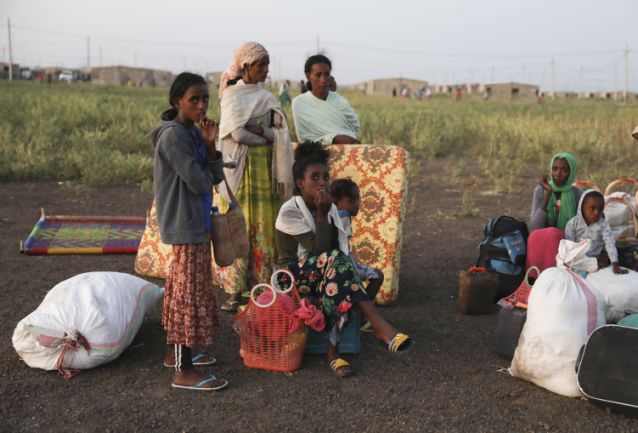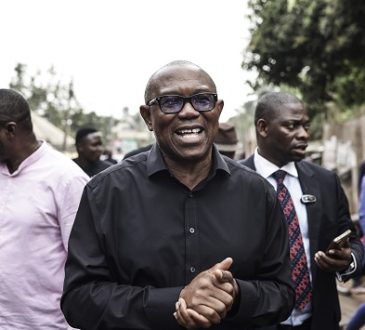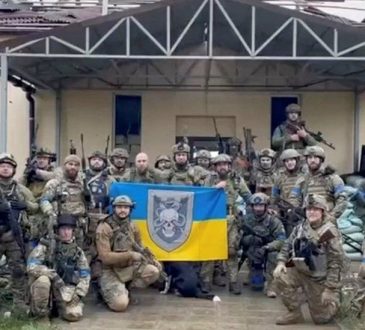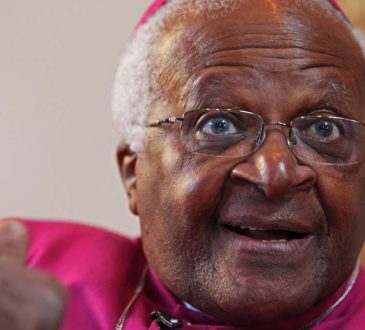
Ethiopia’s Prime Minister Abiy Ahmed has said the military operation in the northern Tigray region is entering its “final phase” now that a three-day ultimatum given to fighters to surrender has expired.
At least 27,000 people have so far fled the fighting into neighbouring Sudan.
The UN has said a “full-scale humanitarian crisis” is unfolding.
The conflict began almost a fortnight ago as tensions between the federal and regional governments boiled over.
Fighting broke out after Ethiopia’s government accused the Tigray People’s Liberation Front (TPLF), which controls Tigray, of treason and of occupying a military base..
The TPLF sees the federal government as illegitimate.
The UN fears the numbers fleeing Ethiopia may be just a fraction of those forced from their homes by the fighting, but for the moment aid agencies have no access to the Tigray region.
The conflict has also reportedly killed hundreds, but getting information from Tigray is hard as there is a virtual communications blackout.
Regional powers Kenya and Uganda have called for negotiations to find a peaceful resolution to the conflict.
The Ethiopian government has, however, ruled out talks with the TPLF.
In a Facebook post, the prime minister thanked TPLF fighters who, he said, took advantage of the three-day deadline to switch sides but he did not give a number.
He said that his government was “ready to receive and reintegrate our fellow Ethiopians fleeing to neighbouring countries”.
The UN’s refugee agency, the UNHCR, said that “a full-scale humanitarian crisis is unfolding” and thousands were fleeing the fighting.
The agency was “on stand-by to provide assistance in Tigray when access and security allow” spokesman Babar Baloch told a Geneva news briefing.
“There may be massive displacement inside Tigray and that is of course a concern and we try to prepare the best way possible,” Jens Laerke, spokesman of the UN Office for the Coordination of Humanitarian Affairs (OCHA), told the briefing.
Hundreds have reportedly died in Ethiopia since the fighting began on 4 November.
Prime Minister Abiy has accused forces loyal to Tigray’s leaders of carrying out the mass killings. The TPLF has denied involvement, saying it will welcome an independent international investigation.
Ethiopia’s human rights commission said it would send a team to investigate.
The TPLF dominated Ethiopia’s military and political life for decades before Mr Abiy took office in 2018 and pushed through major reforms.
Last year, Mr Abiy dissolved the ruling coalition, made up of several ethnically based regional parties, and merged them into a single, national party, which the TPLF refused to join.
The feud escalated in September, when Tigray held a regional election, defying a nationwide ban on all polls imposed because of the coronavirus pandemic. Mr Abiy responded by calling the vote illegal.
Tigray’s administration sees Mr Abiy’s reforms as an attempt to hand his central government more power and weaken regional states.
It also resents what it calls the prime minister’s “unprincipled” friendship with Eritrean President Isaias Afwerki.
Mr Abiy won the Nobel Peace Prize in 2019 for his efforts to bring peace with Eritrea.
The prime minister believes TPLF officials are undermining his authority.
Mr Abiy ordered the military operation against the TPLF after he said its fighters had crossed “the last red line”.
He accused them of attacking a military camp hosting federal troops on 4 November, calling the action “treasonous”. The TPLF has denied attacking the camp.
BBC




